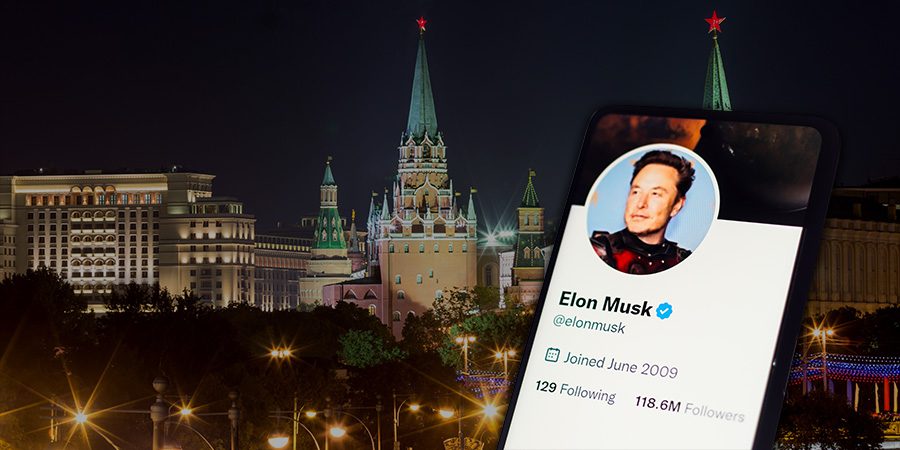In this article, we’ll examine how Elon Musk has recently promoted Twitter accounts associated with the Kremlin, including Vladimir Putin’s presidential account.
This comes after he had previously limited their visibility following the invasion of Ukraine.
Key Takeaways:
- Kremlin-linked accounts reappear in Twitter’s search results, timeline, and recommendations
- Restrictions on Russian state’s social media reach appear to have been softened
- Tests show algorithmically driven “For You” feed featuring Russian state pages
- Former Twitter executive suggests policy change is intentional
- Musk advocates for free speech and reinstated Trump’s Twitter account in November
Twitter’s Policy Shift on Kremlin-Linked Accounts
Last year, when Russia invaded Ukraine, Twitter decided to restrict Kremlin-linked accounts to counter misinformation and propaganda.
This move aligned with Twitter’s stance on limiting the reach of state-affiliated media.
However, recent findings by
The Telegraph suggest that Twitter’s policy on Kremlin-linked accounts has changed, allowing these accounts to regain prominence on the platform.
This change in policy coincides with Elon Musk’s acquisition of Twitter.
Since taking over, Musk has been a vocal advocate for free speech, even going as far as reinstating former President Donald Trump’s Twitter account.
As a result, it seems that Twitter’s previous policy on suppressing Russian misinformation has been softened, allowing Kremlin-linked accounts to resurface.
Tests Reveal Changes in Twitter’s Algorithm
The Telegraph ran experiments to check if Twitter was promoting accounts linked to the Kremlin.
They made a new account and observed that pages associated with the Russian state showed up in the “For You” section, even though they didn’t follow them.
Furthermore, these accounts appeared in specific search results and as suggestions for users to follow.
This change in Twitter’s algorithm suggests that the platform has intentionally shifted its policy to allow Kremlin-linked accounts to be amplified once again.
A person who used to work at Twitter said that it’s very doubtful that this change happened by accident or without the company’s staff knowing and making it happen on purpose.
Musk’s Stance on Free Speech and Controversial Tweets
Elon Musk has made it clear that he values free speech and has criticized Twitter’s previous policy of suspending accounts that were considered harmful by some.
His $44 billion acquisition of Twitter has allowed him to make changes to the platform in line with his beliefs, such as reinstating Trump’s account and removing restrictions on Kremlin-linked accounts.
However, Musk’s support of free speech has also led to some controversy.
He has been criticized for tweets outlining a peace plan that would involve Ukraine surrendering much of the territory Russia occupied after its invasion.
Despite the controversy, his Starlink satellite internet service has been helpful to Ukraine’s defense.
Twitter’s History of Limiting State-Affiliated Media Reach
Twitter has a history of limiting the reach of state-affiliated media, which started in 2020.
The platform would not recommend state-affiliated accounts to users and would label them as such. This policy aimed to reduce the spread of misinformation and propaganda from state-affiliated sources.
In February 2022, when Russia invaded Ukraine, Twitter went beyond and limited Kremlin-linked accounts.
They declared that they won’t highlight or suggest accounts linked to governments that impede access to free information and participate in armed conflicts between nations, regardless of whether Twitter is accessible in that state or not.
Thus, Kremlin-associated accounts will not display in Twitter’s primary search functions.
Conclusion
The recent findings suggest that Twitter, under Elon Musk’s leadership, has changed its policy on restricting Kremlin-linked accounts.
These accounts are now being promoted again in search results, timelines, and recommendations.
This change aligns with Musk’s stance on free speech and raises questions about the future of Twitter’s policies on state-affiliated media and misinformation.
As the world continues to grapple with the challenges of misinformation and propaganda, Twitter’s actions will likely remain under scrutiny.
 Sections of this topic
Sections of this topic
















